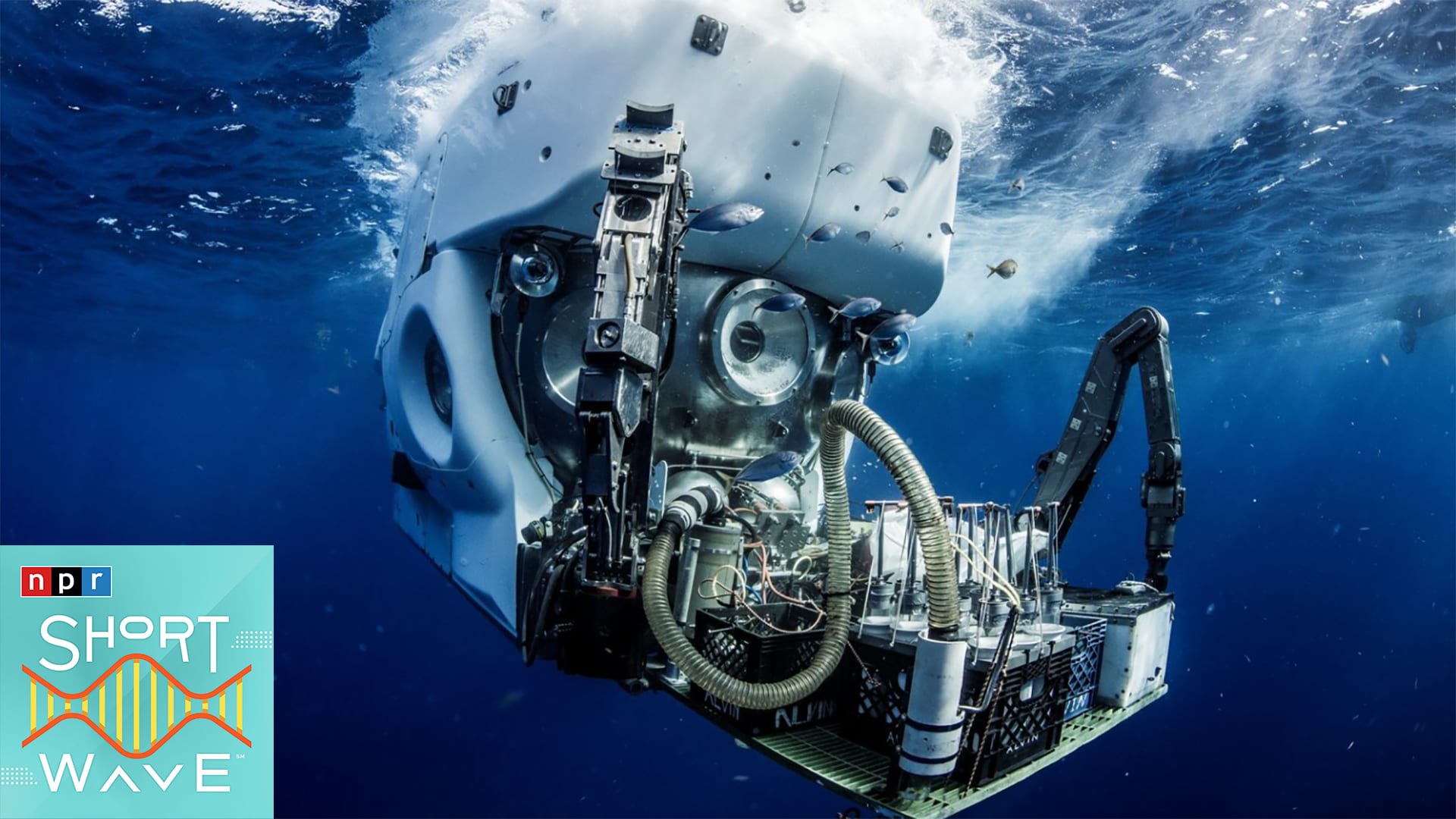Feature on News & Insight
The Mystery of Why Our Ancestors Left Africa
How might climate variability have shaped H. erectus? The marine geologist and climate scientist Peter de Menocal, the director of the Woods Hole Oceanographic Institution, in Massachusetts, has studied changes in climate 1.9 million…
Read MoreCan we harness the natural power of the ocean to fight climate change?
A top priority for science is to advance our understanding and monitoring of the oceans so that we can measure impacts and viability of these potential solutions. Specifically, this means developing more complete understanding of how the ocean works…
Read MoreNeed to Avoid Carbon ‘Gold Rush’ in the Ocean: Peter de Menocal
WHOI president and director Peter de Menocal speaks on the urgency and scale of ocean carbon capture and storage solutions.
Read MoreSunlight Exposure for 100 Hours or Less Melts Plastics, Breaks Them Down Into Smaller Soup of New Chemicals
Microplastics are considered a major environmental hazard that is produced from the disintegration of plastics. Sadly, many of them end up in oceans and pollute or contaminate the waters and…
Read MoreA Recent Reversal Discovered in the Response of Greenland’s Ice Caps to Climate Change
New collaborative research from the Woods Hole Oceanographic Institution and five partner institutions (University of Arizona, University of Washington, Pennsylvania State University, Desert Research Institute and University of Bergen), published on…
Read More‘Rolls-Royce’ of shark cameras can extend to turtles, whales, seals and squid for ocean’s big picture
A high-tech SharkCam invented by a Cape Cod researcher offers an unprecedented window into the lives of the ocean’s toothy predators, and can also extend to seals, whales, turtles and…
Read MoreMelting ice imperils 98% of Emperor penguin colonies by 2100
WASHINGTON (AP) — With climate change threatening the sea ice habitat of Emperor penguins, the U.S. Fish and Wildlife Service on Tuesday announced a proposal to list the species as…
Read MoreWhat Happens to Marine Life When There Isn’t Enough Oxygen?
In September of 2017, Woods Hole Oceanographic Institution postdoctoral scholar Maggie Johnson was conducting an experiment with a colleague in Bocas del Toro off the Caribbean coast of Panama. After…
Read MoreSharks and the ocean’s twilight zone: Some female great white sharks can deep dive for hours
Much of the shark focus around the Cape is on great whites roaming close to the shoreline as they prowl for seals, but researchers are finding out that several sharks…
Read More‘What we know now is how much we don’t know’: Enter the strange world of the ocean twilight zone
A difficult area to study and often overlooked by science, new technology is aiding its exploration, forcing researchers to re-evaluate just how much life is down there. Researchers now believe…
Read MoreRobot Dives 3,000 Feet to Film Creatures in Mid-Ocean ‘Twilight Zone’
Bioluminescent creatures and others inhabiting the dark depths 3,000 feet below the surface in the mid-ocean “twilight zone” — beyond the reach of sunlight — are now being documented by a…
Read MoreAlvin: Pioneer of the Deep
The deep-sea submersible Alvin has brought explorers to extraordinary places for more than 50 years. Now, as Alvin is poised to continue its revolutionary scientific work, a new set of…
Read MoreMaine’s having a lobster boom. A bust may be coming.
The waters off Maine’s coast are warming, and no one knows what that’s going to mean for the state’s half-billion-dollar-a-year lobster industry—the largest single-species fishery in North America. Some fear that continued warming could cause the lobster population to collapse. To understand what’s happening to the ecosystem of the Gulf of Maine, says Glen Gawarkiewicz, an oceanographer at Woods Hole Oceanographic Institution, in Massachusetts, you have to look beyond it—see how it’s affected by the atmosphere, ocean currents, and rivers that flow into it.
Read MoreCommerce Secretary Raimondo visits Woods Hole
U.S. Commerce Secretary Gina Raimondo visited Massachusetts on Friday to tour the Woods Hole Oceanographic Institute (WHOI) and the National Oceanographic and Atmospheric Administration’s (NOAA) Northeast Fisheries Science Center. The…
Read MoreOn the Verge of Extinction, These Whales Are Also Shrinking
Most of the 360 or so North Atlantic right whales alive today bear scars from entanglements in fishing gear and collisions with speeding ships and, according to new study, they…
Read MoreA Rusting Oil Tanker Off the Coast of Yemen Is an Environmental Catastrophe Waiting to Happen. Can Anyone Prevent It?
Viviane Menezes, a marine scientist at the Woods Hole Oceanographic Institute in Massachusetts, has described the Red Sea as being like a “big lagoon” with “everything connected.” An oil spill…
Read MoreSlowdown of powerful current system could negatively impact climate patterns, study says
A new study says the powerful system of currents that are the flywheel of Earth’s climate might be weakening. WHOI president and director Peter de Menocal joined Elaine Quijano on CBSN with details.
Read MoreA Gruesome Feeding Frenzy in the Atlantic Ocean
Even when a whale dies an unnatural death, its body joins the ocean’s vast circle of life. And very often, that circle is very messy, and it involves sharks. WHOI’s…
Read MoreA Quick Dive Into How Submarines Work
Submarines can descend thousands of feet below the surface of the ocean, but to do so, they have to deal with an enormous amount of pressure. NPR caught up with…
Read More‘Ropeless’ Lobster Fishing Could Save The Whales. Could It Kill The Industry?
Unexpected life is discovered in a deep, dark Antarctic world
Study: Acidic ocean could devastate Cape Cod and Islands shellfish industry
From north to south pole, climate scientists grapple with pandemic disruptions
Carin Ashjian, a biological oceanographer at WHOI who studies the impact of climate on ecology, was also on the ship then and remembers that “there were a lot of mixed feelings” when news of the pandemic hit them in March
Read MoreHow safe is the water off the coast of the San Onofre nuclear plant?
Surfrider teams with Woods Hole Oceanographic Institution to conduct their own tests of San Onofre’s radioactive wastewater.
Read More




















